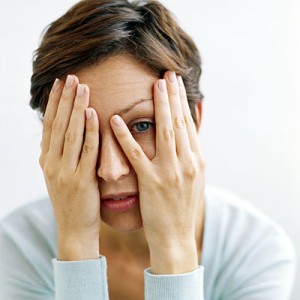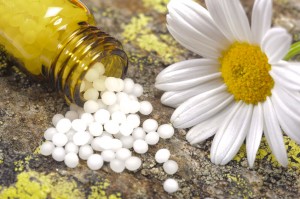Anxiety is something that most people experience at one time or another. It usually results from anticipating and worrying about an upcoming event, such as an exam, a presentation, a sporting event, or a job interview. Lifestyle factors such as including too much caffeine and sugar in your diet, poor nutrition, recreational drug use, exhaustion, and stress, and the side effects of certain medications can also cause anxiety.
a sporting event, or a job interview. Lifestyle factors such as including too much caffeine and sugar in your diet, poor nutrition, recreational drug use, exhaustion, and stress, and the side effects of certain medications can also cause anxiety.
Becoming anxious under pressure can sometimes be a positive thing, as it can lead to increased performance levels. For most people, anxiety is a short-term problem and tends to disappear after the anticipated event has passed. If anxiety occurs on a regular basis and threatens to overwhelm you, however, it becomes a bigger problem. The psychological effects of anxiety include fear, tension, irritability, and an inability to relax or concentrate. You may have an overwhelming desire to seek the reassurance of others, making you clingy and dependent. You may start to have a pessimistic outlook on life, and always assume that the worst is going to happen.
For those times you’re feeling anxious, here are some forms of kindness you owe yourself.
Warmbath: Soak away in one of the most pleasant and reliable ways to soothe your senses. For an even better balm, add some lavender oil (or dried flowers if you have them) to the tub and soak to your heart’s content. Although no one knows what gives this wonderfully scented herb its calming effect, lavender has a 2,000-year-old reputation as a calmative that soothes the nerves.
Diet: It is best to eat foods that are calming and nourishing, such as rice porridge, licorice (not the sweets since most do not have licorice in them), Chinese jujube, peppermint, chamomile, and chicken soup. Eat plenty of fresh vegetables and reduce the amount of coffee you drink. Fruits such as pears, cranberries, blueberries, and bananas are recommended. Mung beans, red beans, bamboo shoots, and purslane are also good. Avoid food that is rich and fatty.
 TIP: DRINK AN ANTI-ANXIETY TEA
TIP: DRINK AN ANTI-ANXIETY TEA
Mix 1/2oz of dried lavender, oats, linden flower, catnip, and lemon balm. Add 4tsp of this mixture to 1 quart of boiling water. Let the herbs steep for about 10 minutes. Strain and drink the tea while it is warm. You can drink up to 6 cups a day after meals.
Breathing Exercises: Deep breathing relaxes the mind, calms the nervous system, and improves mental focus and energy. Deep breathing requires imitating the breathing patterns of a child- they breathe from the belly not the chest. To deep breathe properly, find a comfortable, quiet area. Stand with your knees slightly bent or sit straight with your buttocks touching the back of your seat. Breathe in through your nose to a count of five, hold for two seconds, and exhale to a count of five. While breathing in, your stomach, rather than your chest, should expand outward. When breathing out, your stomach should flatten.
Aromatherapy: Plant essential oils can be added to baths, massage oil, or infusers to relieve symptoms of anxiety. A few drops of essential oils in a base oil can be massaged into the scalp and temples before bed. Essential oils that are used for anxiety and nervous tension are: bergamot, cypress, geranium, jasmine, lavender, Melissa, rose, sandalwood, and ylang-ylang. Lavender is the most common and forms the base of many relaxing blends.
TIP: EXERCISE
Exercise is perhaps the safest and most effective method of managing stress. Cardiovascular exercise combined with calming exercise, such as walking several times per week, can be very beneficial.
Melatonin: Melatonin is a hormone made by the brain to regulate sleep cycles, but it can also play a role in mood and anxiety. If you have anxiety, melatonin may help make it easier to fall asleep at night, since insomnia is a common side effect of this mood disorder.
Bach Flower: This mix was created by Dr. Bach to deal with emergencies and crises – the moments when there is no time to make a proper individual selection of remedies. It can  be used to help us get through any stressful situations, from last-minute exam or interview nerves, to the aftermath of an accident or bad news. Rescue Remedy helps us relax, get focused and get the needed calmness.
be used to help us get through any stressful situations, from last-minute exam or interview nerves, to the aftermath of an accident or bad news. Rescue Remedy helps us relax, get focused and get the needed calmness.
The Rescue Remedy is designed to help deal with immediate problems. If you are working through an underlying problem – or if you need rescuing every day – you will find a longer-term solution by selecting a personal blend of remedies.
Many people chose to carry Rescue Remedy in their purse, at the office, in the car or in the diaper bag. You never know when you need it.
Homeopathy
The following remedies can help to relieve a single, mild to moderate episode of anxiety that has been triggered by an obvious cause. This might involve an emotional shock, a sharp escalation in stress and pressure, or anticipation regarding a stressful even (such as sitting an examination or going to a job interview). Established, severe, and recurrent anxiety symptoms are best treated by an experienced homeopath.
Aconite: This is a fantastic remedy for treating anxious, panicky feelings that wash over you very quickly and dramatically, making you feel terror-stricken. Symptoms are likely to be especially severe at night, waking you from sleep and making it very difficult to fall back asleep.
Lycopodium: If anticipatory anxiety particularly affects digestion, leading to tension in the stomach, try Lycopodium. The gut is also affected by bloating, noisy rumbling, and gurgling, and sufferes alternate between being constipated and having diarrhea. Although patients feel nervous and tense inside, they tend to look calm and confident on the outside. Alternately, sufferers may be sarcastic, critical, and domineering.
Nux vomica: When this remedy is helpful, anxiety is accompanied by addictive behaviour. This often involves relying on stimulants such as caffeine to keep going, and depressants such as alcohol to unwind. As a result, sleep patterns suffer, aggravating feelings of irritability and impatience. Additional symptoms include muscle tension, tension headaches, and constipation.
Arg nit: This can be a useful remedy for easing anticipatory anxiety that is associated with muscle trembling, palpitations, and talking nonstop when agitated. Emotional, mental, and physical restlessness are key symptoms, and sufferers tend to have loose stools or diarrhea when agitated and anxious.









